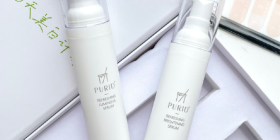People
In 2011, the UN Human Rights Council unanimously endorsed the UN Guiding Principles on Business and Human Rights (UNGPs), marking it as the first international instrument that assigns companies the responsibility to respect human rights.
Accounting for a third of the global population, Gen Z, 9–24-year-olds (born between 1997-2012), has surpassed millennials as the largest generation, and they are grabbing a larger share of the attention of beauty brands too. (Allen, 2021) Gen Z consumers have grown up with the technology and experienced a variety of cultures. They are known for unique characteristics, such as a focus on experiences, a willingness to try new things, and a strong desire for social interaction. They are enthusiastic about investing significant time and even money in areas that reflect their identity.
According to surveys, Gen Z is the loneliest generation in America, so they’re actively looking for ways to engage and connect with like-minded individuals. (J, Hilliard 2019) Brands can consider building digital communities to attract Gen Z customers, encouraging them to share their thoughts and provide feedback during product development, which will strengthen the bond between Gen Z customers and the brand.
The cosmetic industry should also adapt its marketing tactics to capture with the new generation that has grown up with internet and online social media. For example, spending more time collaborating with internet influencers and establishing their own official accounts on various online media platforms, such as TikTok and Instagram, to promote their products.
The content of the video must be entertaining enough to attract Gen Z attention. Gen Zers have an uncanny ability to filter content.(Thomas, 2022) Fenty Beauty, a makeup brand, has effectively achieved this on their TikTok and Instagram account by creating interesting and easily digestible tutorials in collaboration with beauty influencers, which highlights their products on the internet.
Furthermore, the beauty and cosmetics industry faces challenges related to diversity and human rights in product development and advertising. The rise of online media and internet influencer marketing has made it easier to hold companies accountable for opacity.
Fanty beauty is a notable example of responding to racial diversity. They have created more than 50 foundation shades to cater to every race, allowing individuals to find their most suitable skin colour.
As the influence of the internet continues to expand, cosmetics companies should hire more individuals with expertise in the technology field to establish online stores and recruit people working in social media to help the brand create online live-streaming experiences. This approach not only reduces costs associated with physical stores and traditional media but also allows more Gen Zers to connect with the brand online.
Reference:
PowerReviews (2021). Consumer Survey: The Changing Face of the Beauty Shopper. Available at: https://www.powerreviews.com/insights/2021-beauty-industry-consumer-report/. [Accessed 12 Oct. 2023]
Allen , J. (2021). Cosmetics Business Reveals Key Gen Z Beauty Trends in new report. Available at:https://cosmeticsbusiness.com/news/article_page/Cosmetics_Business_reveals_key_Gen_Z_beauty_trends_in_new_report/179180 [Accessed 12 Oct. 2023].
ESW Global Voices Survey (2023). Millennials Will Lead Global Ecommerce Spending in 2023, New Study Reveals.
Available at: https://www.businesswire.com/news/home/20230324005221/en/Millennials-Will-Lead-Global-Ecommerce-Spending-in-2023-New-Study-Reveals [Accessed 12 Oct. 2023]
Thomas, M. (2022). 5 Gen Z Marketing Strategies to Implement in 2023. Available at: https://later.com/blog/gen-z-marketing/ [Accessed 15 Oct. 2023].


